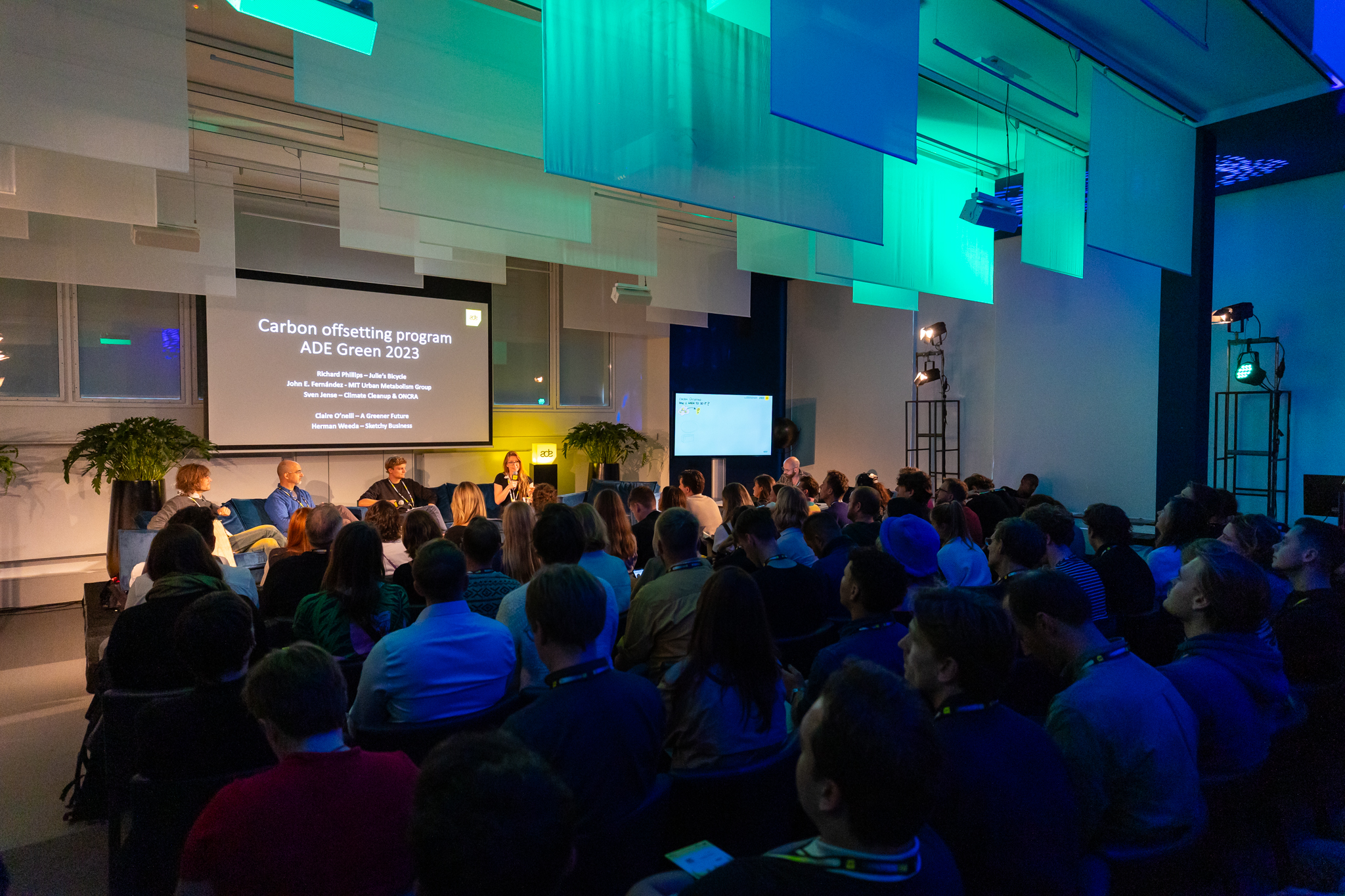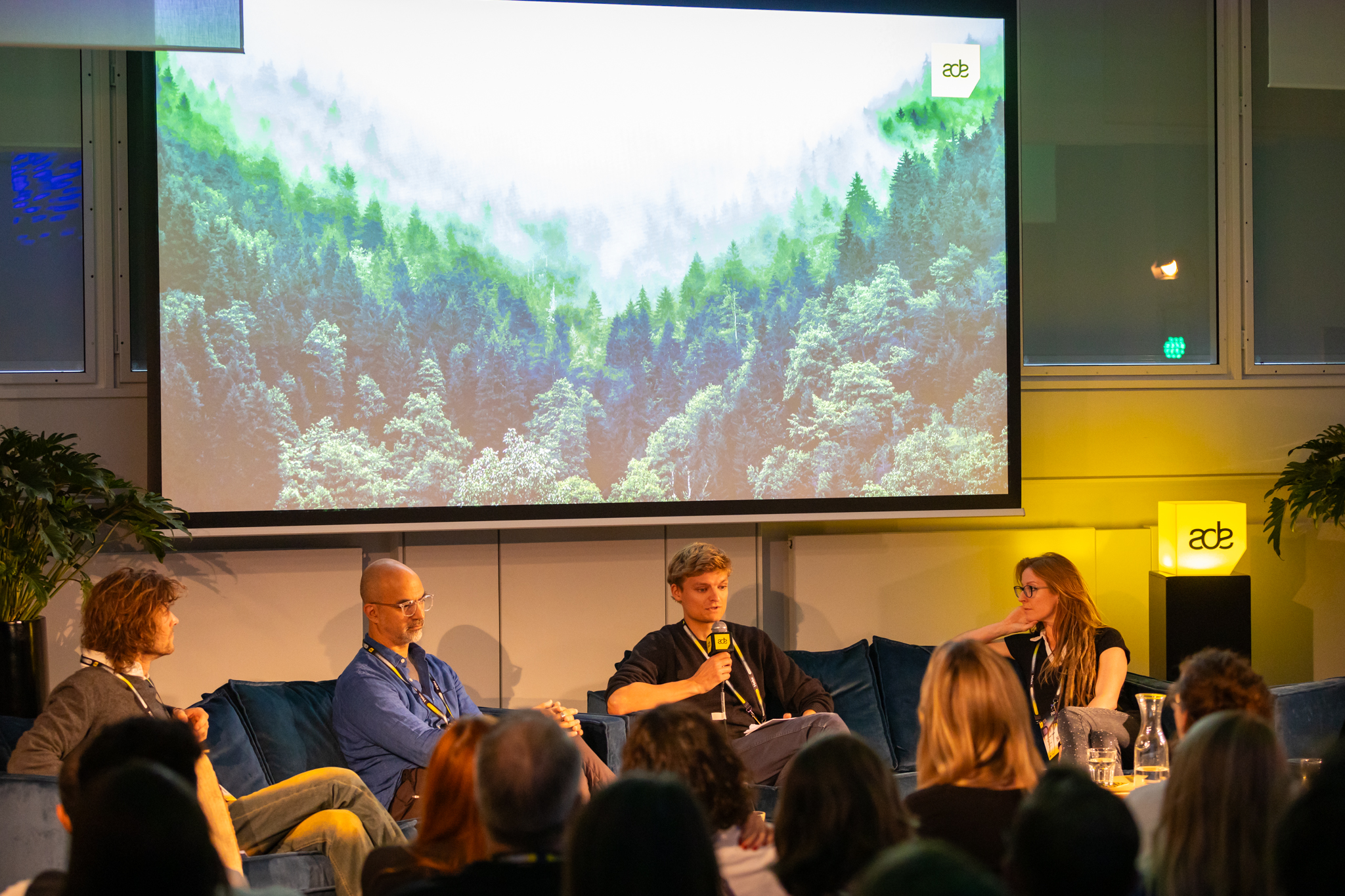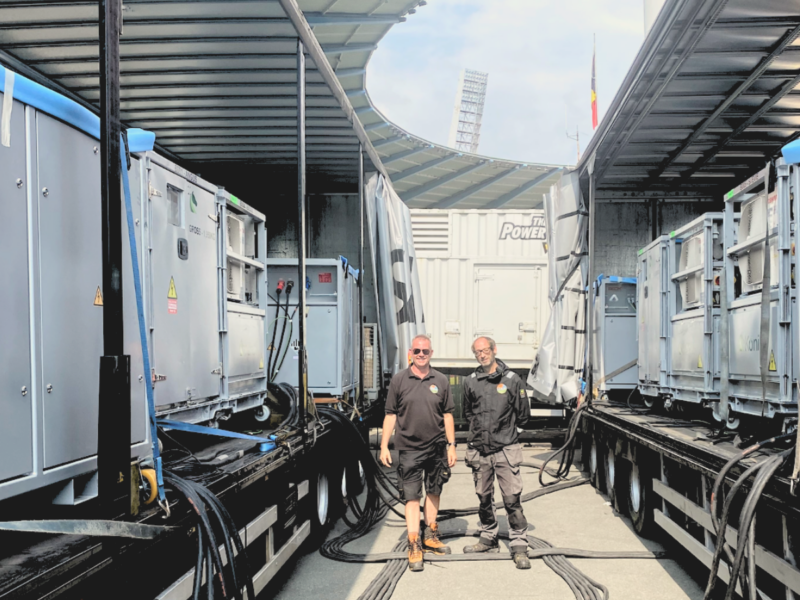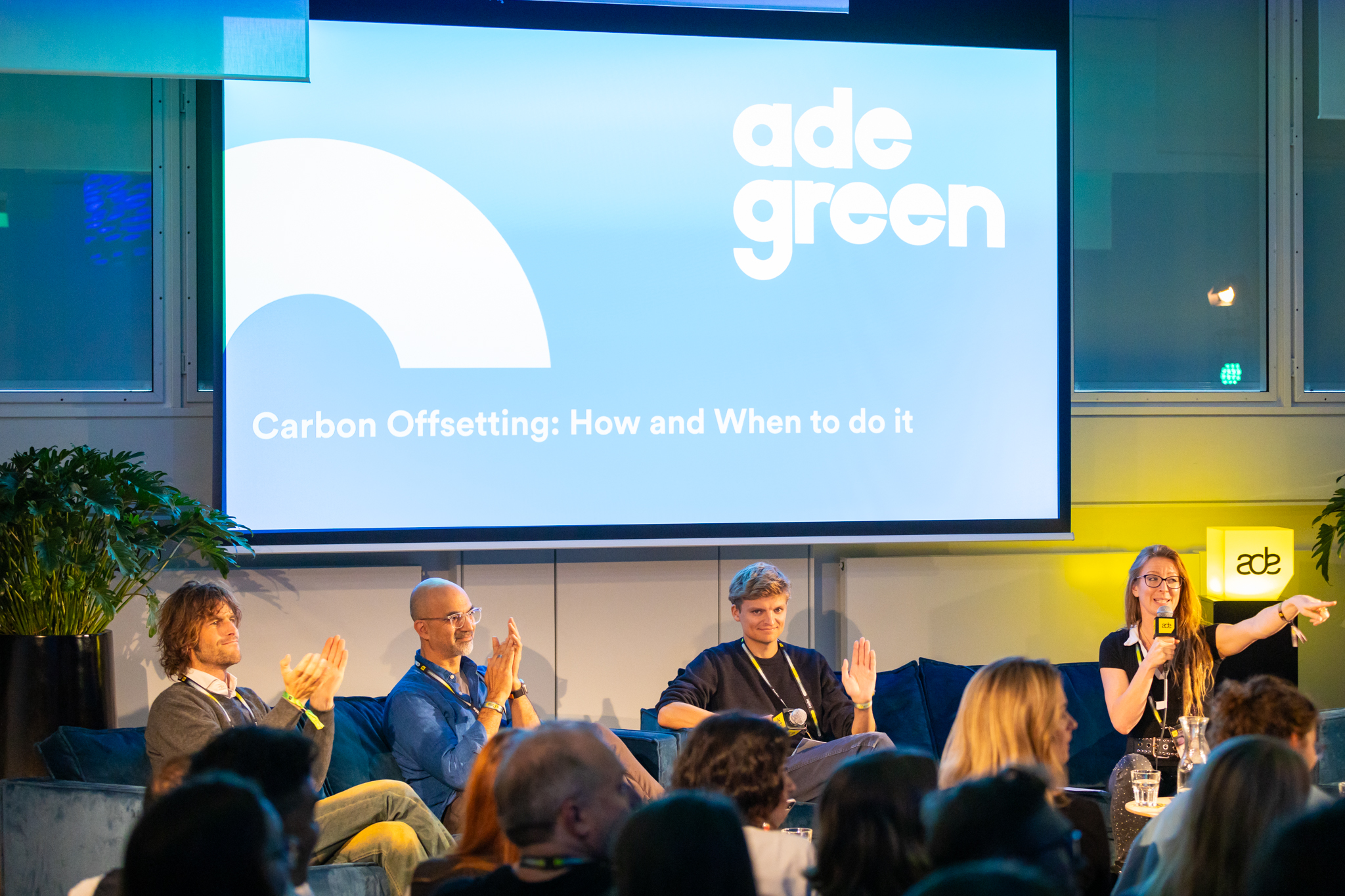
ADE Green Recap: 10 Questions on Carbon Offsetting
In the ADE Green 2023 workshop “Carbon Offsetting: How and When to Do It”, tailored for music artists and events, we deep-dived into the complex world of measuring, emissions, impact responsibility and different ways to compensate or offset the consequences of our actions.
Most artists and festivals currently have an unavoidable impact on the climate (and more). The question of when, and if so, how to best take responsibility and offset this impact, is one of the big ones of our time.
In the workshop, Richard Phillips (Julie’s Bicycle), John E. Fernández (Environmental Solutions Initiative and MIT) and Sven Jense (Climate Cleanup and ONCRA), discussed this topic. The session was moderated by Claire O’Neill (A Greener Future) and visually supported by Herman Weeda (Sketchy Business).
The expert panel first dismantled much of the current offsetting certificates. The shared conclusion of the first half an hour was:
“We can’t offset ourselves out of the climate crisis, but ‘good’ carbon offsetting can play an important role nonetheless”.
In the following discussion between the audience and the panelists, it became clear that there certainly are situations where carbon offsetting is a good idea. And there are carbon offsetting projects out there that are worthwhile and effective. Somebody in the audience asked the question that was on everybody’s mind:
“But when is it good to offset one’s climate impact and how do we know what ‘good’ offsetting is? We need some kind of a checklist for the music industry.”
So here it is:
The 10 guiding questions to improve your organisation’s decision-making on ‘good’ Carbon Offsetting
1. Did we (accurately) calculate our complete carbon footprint?
2. Did we prevent all our carbon emissions as much as currently possible?
3. Did we establish a minimum carbon price and budget?
4. Is offsetting the most impactful way of spending our carbon budget?
If the answer to question four is yes, continue with the next questions.
5. Is the offsetting project actually removing carbon from the atmosphere?
6. Is the carbon being removed immediately – as soon as possible?
7. Is the offsetting project being measured, verified and put in a database?
8. Is the carbon stored for the long-term?
9. Is the carbon offset project leading to leakage?
10. Is the offsetting project solving other challenges as well?
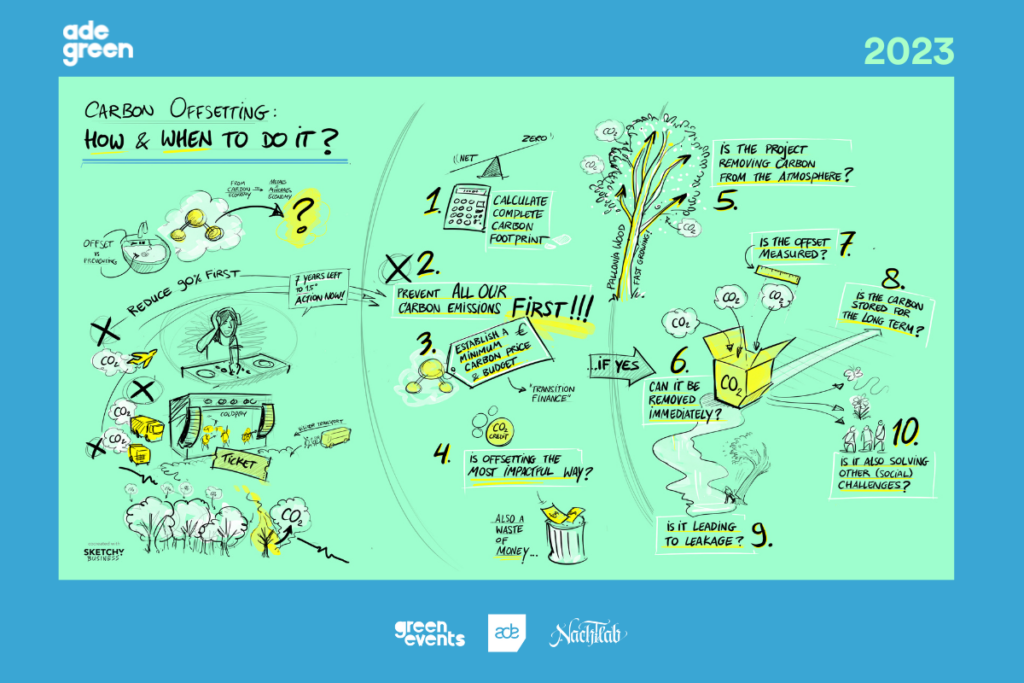
Do you want to dive deeper into carbon offsetting and pricing? Read Julie’s Bicycle’s report on offsetting and carbon pricing.


